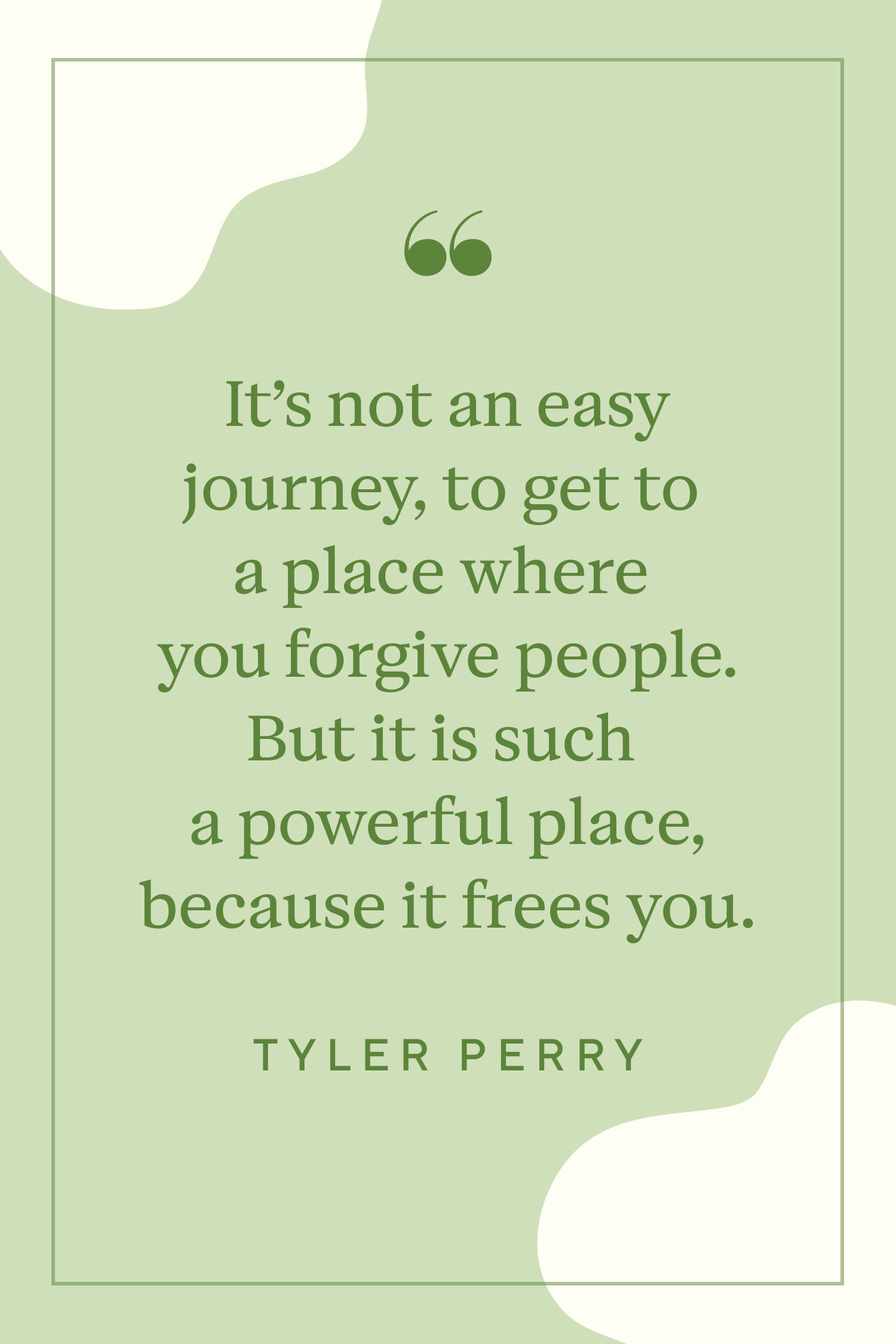Why Understanding the Importance of Forgiveness Can Transform Your Life
Wiki Article
Comprehending the Relevance of Forgiveness in Recovery Relationships
Mercy is usually considered as a straightforward act of letting go, yet its importance in healing connections prolongs far beyond mere absolution. It acts as a critical mechanism for psychological release, enabling people to navigate the intricacies of discomfort and resentment. Recognizing the nuanced differences in between forgiveness and reconciliation can brighten the course towards healthier communications. As we explore the multifaceted advantages of forgiveness, one need to think about how these concepts can transform not just individual relationships however also the more comprehensive social fabric. What continues to be to be uncovered is the extensive influence mercy can have on individual development and communal consistency - The importance of forgiveness.The Definition of Forgiveness
Although forgiveness is commonly perceived as a basic act of releasing, its definition includes a complex interaction of emotional and mental procedures. At its core, mercy is the aware choice to launch sensations of bitterness or revenge toward a private or group that has triggered damage. This process is not merely about absolving the wrongdoer; rather, it includes an extensive psychological transformation that can lead to personal development and recovery.Mercy is diverse, commonly defined by an individual's internal struggle to integrate their discomfort with the desire for peace. It needs recognizing the misdoings committed, processing the linked feelings, and eventually deciding to relocate onward without the burden of displeasure. This option commonly requires a cognitive shift, where one reframes their understanding of the criminal and the transgression, allowing for compassion and comprehending to emerge.
Notably, mercy does not imply pardoning the habits or failing to remember the offense; it is a calculated act that focuses on emotional health. By specifying forgiveness in this fashion, we can appreciate its duty in promoting healthier partnerships and promoting psychological durability, setting the phase for deeper expedition into its advantages.
Emotional Benefits of Forgiveness
Mercy offers substantial emotional advantages that can profoundly affect a person's mental wellness and overall health. When a person selects to forgive, they proactively release sensations of bitterness, temper, and resentment, which can otherwise develop a heavy psychological problem. This release frequently brings about a decrease in stress and anxiety and stress and anxiety, promoting a feeling of tranquility and psychological security.Moreover, forgiveness promotes an enhanced capacity for empathy and compassion. By comprehending the viewpoint of the offender, individuals can cultivate a deeper emotional durability, which improves their capability to deal with future challenges. This process not only improves emotional guideline yet additionally contributes to a more positive overview on life.
Furthermore, flexible others can reinforce one's self-worth and self-regard. It allows people to redeem their personal power, breaking without the negative cycles of victimhood - The importance of forgiveness. This newfound empowerment can lead to healthier emotional actions and more powerful social relationships
Mercy vs. Settlement
The distinction in between forgiveness and reconciliation is vital in recognizing the characteristics of healing connections. Forgiveness is an internal procedure where a private chooses to let go of resentment and adverse sensations towards someone who has actually created damage. It is mainly a personal journey, focused on psychological launch and self-healing, enabling one to move on without lugging the burden of previous grievances.In comparison, reconciliation involves restoring and restoring the connection to a state of count on and common respect. This procedure usually needs open interaction, active involvement from both celebrations, and a dedication to dealing with the underlying problems that resulted in the problem. While forgiveness can happen independently, reconciliation demands the determination of both people to participate in discussion and pursue a common understanding.
It is important to keep in mind that mercy does not always cause settlement. An individual may forgive an additional without opting to bring back the partnership, particularly if depend on has been irrevocably damaged or if the connection is deemed undesirable. Recognizing this distinction enables individuals to navigate their feelings effectively and make notified choices regarding their relationships.
Steps to Grow Mercy
Growing forgiveness is an intentional procedure that entails several key steps intended at promoting emotional healing. The primary step is acknowledging the pain brought on by the infraction. Identifying one's sensations is important, as it enables people to refine their feelings truly.Following, mirroring on the incident and comprehending its influence can give clarity. This reflection must consist of analyzing the inspirations behind the offender's activities and recognizing that every person is fallible.
The third action entails making a mindful decision to forgive. This choice is vital, as it symbolizes a determination to let go of animosity and relocate forward.
Ultimately, sharing feelings in a positive way can be beneficial - The importance of forgiveness. Whether with journaling, speaking with a relied on buddy, or seeking therapy, expression of feelings can help in the forgiveness trip
Real-Life Instances of Mercy

In an additional instance, a close-knit team of friends encountered a significant break after one member inadvertently shared a personal secret. Instead of nurturing animosity, the affected pal made a decision to forgive, recognizing the value of valuing the relationship over the error. This choice motivated open dialogue and inevitably reinforced their link.

Final Thought
In conclusion, mercy plays a pivotal duty in the healing of partnerships by assisting in the launch of adverse emotions and promoting compassion. By comparing forgiveness and settlement, individuals can take part in a positive process that boosts emotional wellness. Implementing steps to grow forgiveness can bring about transformative outcomes, reinforcing connections and advertising a supportive setting. Ultimately, the method of mercy acts as a catalyst for personal growth and the nurturing of healthier interpersonal characteristics.
Report this wiki page